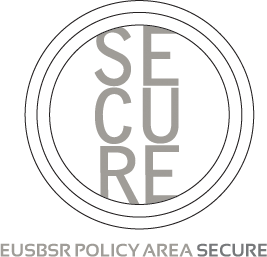 In preparation for our session “Transnational cooperation for effective disaster risk management” at the European Civil Protection Forum 2018 we asked Karolina Kalinowska, Policy Officer at the European Commission’s DG ECHO, who helped us with the organisation of the panel: “How can the macro-regional strategies contribute to the implementation of the EU Sendai Action Plan and vice-versa? How do you see DG ECHO in the process?”
In preparation for our session “Transnational cooperation for effective disaster risk management” at the European Civil Protection Forum 2018 we asked Karolina Kalinowska, Policy Officer at the European Commission’s DG ECHO, who helped us with the organisation of the panel: “How can the macro-regional strategies contribute to the implementation of the EU Sendai Action Plan and vice-versa? How do you see DG ECHO in the process?”
“The Sendai Framework for Disaster Risk Reduction, adopted by UN member states in 2015, provides a new global framework for reducing vulnerabilities to disasters and building more resilient societies. It has 4 priorities for action at 4 levels (local, national, regional, global) to meet 7 global targets. The Sendai Framework offers a new, systematic, approach to prevent new and reduce existing disaster risks, through an all-of-society and all-hazards risk approach across economic, social, and environmental policy areas. The priorities focus on a better understanding of risk, strengthened disaster risk governance and more investment for disaster risk reduction. A final priority calls for more effective disaster preparedness and embedding the ‘build back better’ principle into recovery, rehabilitation and reconstruction.
The EU played a leading role in the negotiations of the Framework and many of the Sendai recommendations are based on existing EU disaster risk management policies and programmes, including most of the ongoing civil protection, development cooperation and humanitarian aid actions.
While all four priorities are relevant to the work of macro-regional strategies, the one that stands out is the ‘all-of-society approach’ in disaster risk management, in support of Priority 2. Macro-regional strategies are already furthering this by bringing together actors at various levels of governance.
An important deliverable under the Sendai Framework is Target 5: increasing the number of national and local disaster risk reduction (DRR) strategies, already by 2020. Working towards meeting this target is also a priority for the current Bulgarian Presidency of the Council of the EU in the field of civil protection. The macro-regional strategies can support this target through developing their own DRR strategies. Implementation of these strategies should lead to the development of better risk- informed policies and programmes in support of more resilient development.
Following the publication of the 2017 EU Overview of Risks and exchanges with Member States, the Directorate-General for European Civil Protection and Humanitarian Aid Operations (DG ECHO) is prioritising the macro-regional approach for shared as well as cross-border risks. The Union Civil Protection Mechanism, managed by DG ECHO within the European Commission, offers multiple support measures for disaster risk management and inter alia the implementation of the Sendai Framework: advisory prevention and preparedness missions, the peer review programme, the Support Service and sharing of knowledge and expertise through the Disaster Risk Management Knowledge Centre. Finally, the UCPM finances Prevention and Preparedness Projects aimed at closer cooperation in prevention, preparedness and awareness-raising in civil protection and marine pollution. Improved cross border and macro-regional cooperation in disaster prevention has featured as an objective in past years and does once again in the 2018 call for proposals (open until 25 April 2018)”.

